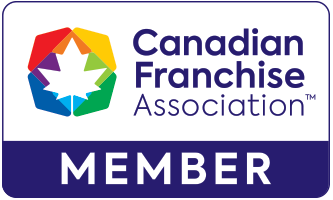Failing to effectively screen a potential business partner can have adverse effects on your company. Not only does it increase risks, it can also reduce productivity, increase lead times, negatively affect cash flow and increase costs. It could even affect your brand image.
That is why, when getting ready to work with a new business (or individual), it is important that you screen them thoroughly.
While all of the information provided in a commercial credit report is important to the decision making process, there are specific areas that require special attention, when reviewing a commercial credit report.
One area in particular is the corporate structure and profile. By ensuring you understand the content presented as part of the corporate profile, you can ensure you identify the critical information.
There are 5 main areas of the corporate profile that you will want to seriously consider.
1. Status
The status of a company is very important and should be confirmed. Each Province uses similar terminology, when referring to corporate status. In Alberta, corporate status is referred to as Legal Entity Status. The remaining provinces use the term Status.
It is important to determine whether the company is active and registered to do business before you begin working with them. If a company is not reported to be “active” this should be considered negative information.
Terms that present the company as inactive include:
- Struck
- Dissolved
- Cancelled
- Removed from Register
- Default notice filed
- Dissolution in Progress
If a company is in default, processing a dissolution or cancelled, there are two ways in which this could have come about.
Method 1: Voluntary
The company itself may begin the voluntary dissolution process to dissolve the company.
Method 2: Involuntary
Companies Branch
A company may be cancelled, struck, removed or placed in default by the Companies Branch for default under the Act, an example of which would be failure to file annual returns.
Corporate Tax Branch
A company may be cancelled, struck, removed or placed in default by the Corporate Tax Branch for failure to file tax returns or for tax arrears.
2. Jurisdiction
Jurisdiction is very important to note, as you will find that the jurisdiction in which the search is conducted may not be the home jurisdiction of the company.
As an example, your prospective tenant could be John’s Clothing Limited in Toronto. We would conduct the company search in Ontario and may find that the company’s home jurisdiction is actually in British Columbia.
This would indicate that the company was incorporated in the Province of British Columbia, not in Ontario, but is registered to do business in Ontario. In these cases, you would want to do an additional search in the home jurisdiction to ensure that the company is active in both the home jurisdiction and extra-provincial jurisdiction.
3. Legal Entity Name/Corporation Name
This section is also important, as it helps to ensure that the correct legal name is placed on the lease or contract. Often a company has made amendments to its original name and/or has been amalgamated with other corporations, both of which change the company’s name.
It is very important to take notice of any differences in the name provided on the application and the name revealed from the corporation or business name search.
4. Date of Incorporation/Amalgamation
This section will establish how long the company has been in business and will also indicate any history of amalgamations with other corporations.
5. Directors/Shareholders
It is important to know who is associated with the company you plan on doing business with, and you’ll find this information in the Directors / Shareholders section.
Please note that shareholder information is only reported in Alberta, Manitoba and Saskatchewan. The other provinces will only indicate directors/officers of the corporation.
For more information on interpreting your credit reports, or if you would like to order a report, contact us today! We pride ourselves on ensuring you have the information you need to make the best decisions possible.
Tags: Business Credit Reports





